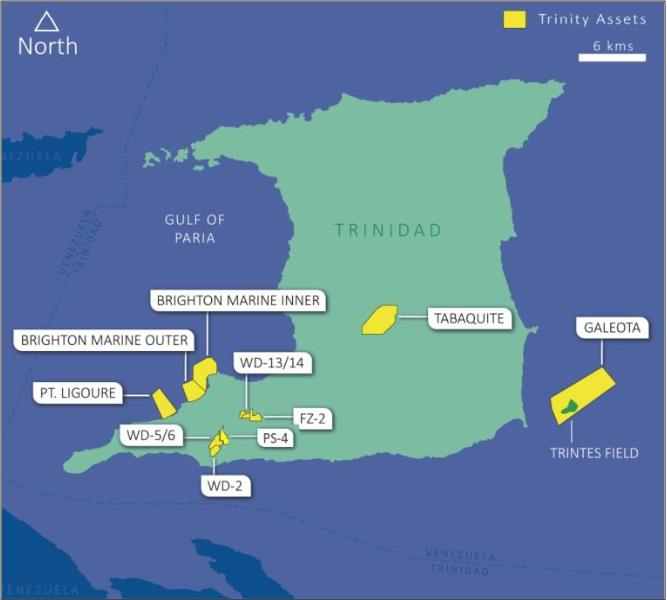
Trinity Exploration & Production has announced a progress update on its Galeota Block, offshore East Coast Trinidad.
Trinity has, following a competitive tender exercise, appointed Petrofac to undertake a Concept-Screening study for the development of further reserves in its Galeota Block. The Galeota Block contains estimated 2P+2C reserves and resources of 46.1 million barrels of oil equivalent and is the Company's largest asset.
The drilling of the TGAL-1 exploration well in 2013 led to the discovery of the TGAL area the Galeota Block, in close proximity to the existing productive Trintes field. To develop multiple reservoirs in the Galeota Block and to do so in a capital efficient manner, Trinity has commissioned Petrofac to undertake a Concept-Screening study to advance development planning.
The study will take a fresh look at development concepts for the Galeota Block, using the latest subsurface information and marrying that with Petrofac's global low-cost marginal field track record to develop a concept that can be taken forward into Conceptual Engineering, Front End Engineering and Project Sanction. Key elements will comprise flexibility to deal with reservoir uncertainty and using equipment that could be potentially relocated around the large Galeota Block. Leased Mobile Offshore Production Units ('MOPU') concepts such as converted jack-ups or Floating Production, Storage and Offloading ('FPSO') vessels will be considered as well as any other suitable scheme. The cost of the study is included within this year's capex guidance range.
The study has commenced and is expected to conclude in September, at which point a further update will be provided.

Jeremy Bridglalsingh, Chief Executive Officer of Trinity, commented:
'While our immediate operational focus is on drilling the onshore Jacobin well, we continue to assess plans to unlock the development potential of our Galeota Block which comprises 69% of our 2P+2C Reserves and Resources. We look forward to working with Petrofac to progress the Concept-Screening study.'
Source: Trinity Exploration & Production











